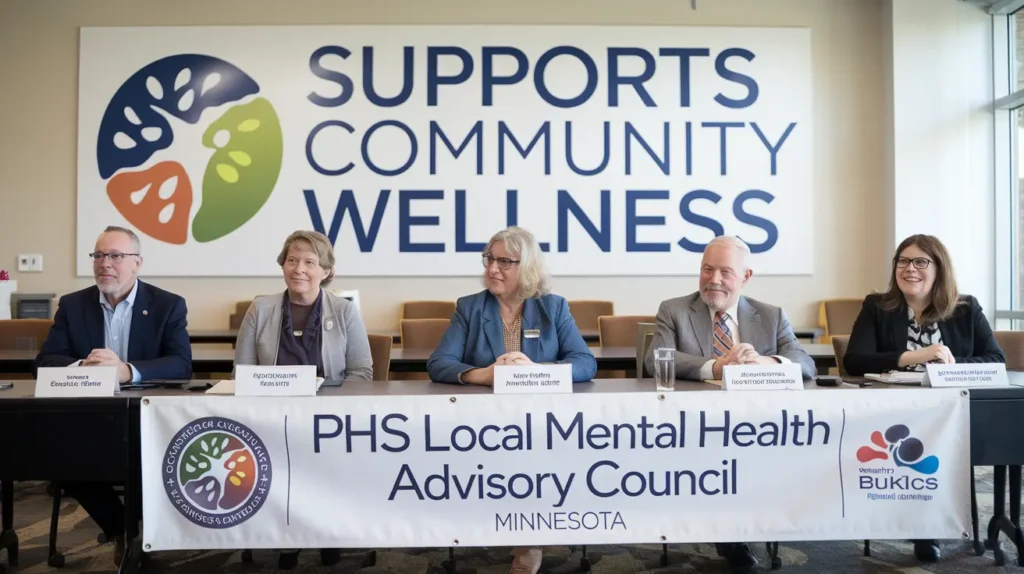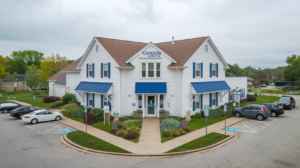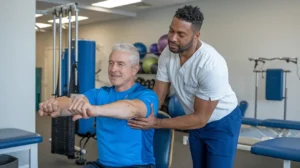The PHHS (Public Health and Human Services) Local Mental Health Advisory Council in Minnesota plays a crucial role in improving community wellness. By focusing on mental health advocacy, education, and service coordination, the council impacts the lives of many. This article explores how the council works, its initiatives, and why its support is vital for the community.
What is the PHHS Local Mental Health Advisory Council?
The PHHS Local Mental Health Advisory Council is an advisory group that focuses on mental health issues in Minnesota. It includes community members, mental health professionals, service providers, and advocates. The council works to identify mental health needs and advises on strategies to address these needs. Their goal is to promote mental wellness through effective programs, support systems, and resource management.
Mission and Goals
The council’s mission is to enhance the mental health of the local community by offering guidance and advocacy. They aim to:
- Increase public awareness of mental health issues.
- Improve access to mental health services.
- Provide feedback to policymakers and service providers.
- Encourage collaboration between local organizations, agencies, and residents.
Through these efforts, the council works to make mental health care more accessible and effective.
Mental Health Advocacy
Advocacy is one of the key functions of the PHHS Local Mental Health Advisory Council. They focus on bringing attention to mental health issues and ensuring that they are addressed at all levels. This includes:
- Lobbying for policies that support mental health initiatives.
- Encouraging funding for mental health services.
- Collaborating with local and state agencies to promote mental health programs.
Their advocacy ensures that mental health remains a priority in community development.
Raising Awareness in the Community
One of the primary ways the council supports community wellness is by raising awareness about mental health. Many individuals struggle with mental health issues but may not seek help due to stigma or lack of knowledge. The council organizes educational campaigns to:
- Break the stigma surrounding mental illness.
- Provide information on available resources.
- Encourage open conversations about mental health.
By educating the public, the council empowers individuals to take charge of their mental health and support others in doing the same.
Coordinating Services for Better Access
The council works to improve access to mental health services. They collaborate with local service providers to streamline mental health care delivery. This includes:
- Identifying gaps in the mental health care system.
- Coordinating services to make them more accessible.
- Facilitating partnerships between different health providers, agencies, and organizations.
This coordination ensures that individuals receive the care they need, without facing unnecessary barriers.
Community-Based Programs
The council actively supports community-based programs aimed at promoting mental health. These programs include:
- Support groups for individuals struggling with mental illness.
- Workshops that teach coping mechanisms and mental wellness strategies.
- Youth programs that focus on building resilience and mental health awareness among young people.
By bringing these programs to the community, the council fosters an environment of support and understanding.
Supporting Families and Caregivers
Mental illness affects not only individuals but also their families and caregivers. The PHHS Local Mental Health Advisory Council recognizes the importance of supporting these groups. They:
- Offer resources and information to families on how to support loved ones with mental health issues.
- Provide caregiver support programs to help reduce burnout and stress.
- Create forums for families and caregivers to share their experiences and find mutual support.
These initiatives help build a support network for families and caregivers, which in turn strengthens the overall community.
Providing Input on Mental Health Policies
The council also serves as a bridge between the community and policymakers. They provide input on mental health policies that affect local services. By offering insights from the community’s perspective, the council ensures that policies are:
- Grounded in the real needs of residents.
- Focused on improving access and quality of care.
- Tailored to address specific challenges within the community.
Their input plays a critical role in shaping mental health services in Minnesota.
Addressing Mental Health Disparities
One of the council’s priorities is addressing mental health disparities. Mental health care is not always equally accessible to all members of the community. The council works to:
- Identify populations that are underserved or face barriers to care.
- Advocate for services that are culturally competent and accessible to all.
- Ensure that mental health programs are inclusive and reflect the diverse needs of the community.
By tackling disparities, the council promotes equity in mental health care.
Collaboration with Other Organizations
Collaboration is essential for the success of the PHHS Local Mental Health Advisory Council. They work closely with:
- Local schools to implement mental health education.
- Healthcare providers to improve the integration of mental health services.
- Law enforcement to provide crisis intervention training.
These partnerships allow the council to address mental health from multiple angles, ensuring a more comprehensive approach to wellness.
Promoting Resilience and Prevention
In addition to treating mental health issues, the council emphasizes prevention and resilience. They support programs that teach individuals how to build mental strength and prevent mental health crises. This includes:
- Stress management workshops.
- Programs that teach coping strategies and emotional regulation.
- Initiatives focused on promoting healthy relationships and social connections.
By focusing on resilience, the council helps reduce the long-term impact of mental health issues.
Checklist for Mental Health Advocacy Involvement
If you’re interested in supporting mental health advocacy in your community, here’s a simple checklist to get started:
- Learn about local mental health services.
- Attend community meetings or events focused on mental health.
- Volunteer with mental health organizations.
- Advocate for mental health policies by writing to local officials.
- Spread awareness by sharing mental health resources with others.
- Support initiatives that address mental health disparities.
- Educate yourself about mental health to reduce stigma.
Getting involved in mental health advocacy can make a big difference in your community.
Highlight: Breaking the Stigma
One of the most important goals of the PHHS Local Mental Health Advisory Council is to break the stigma surrounding mental health. By fostering open conversations, educating the public, and providing resources, the council empowers individuals to seek help without fear of judgment. This shift in perception can lead to a healthier, more supportive community.
Conclusion
The PHHS Local Mental Health Advisory Council Minnesota is a driving force in promoting mental wellness and improving access to mental health care in the community. Through advocacy, service coordination, and educational efforts, the council addresses the community’s mental health needs. By raising awareness, supporting families and caregivers, and collaborating with local organizations, the council works to create a supportive and informed community. Their focus on resilience, prevention, and equity ensures that mental health services are accessible to all, fostering a healthier, more connected society.



